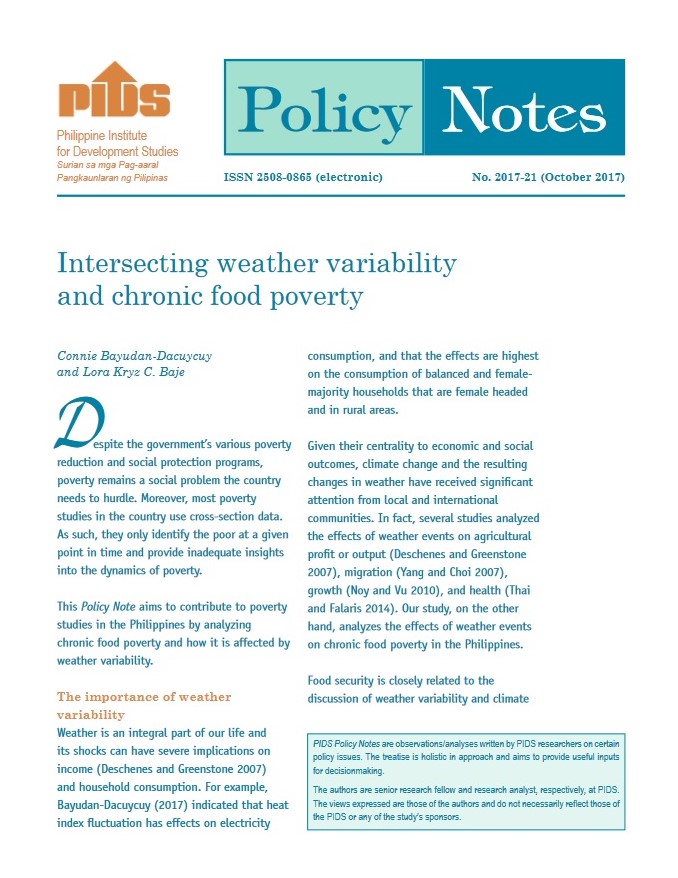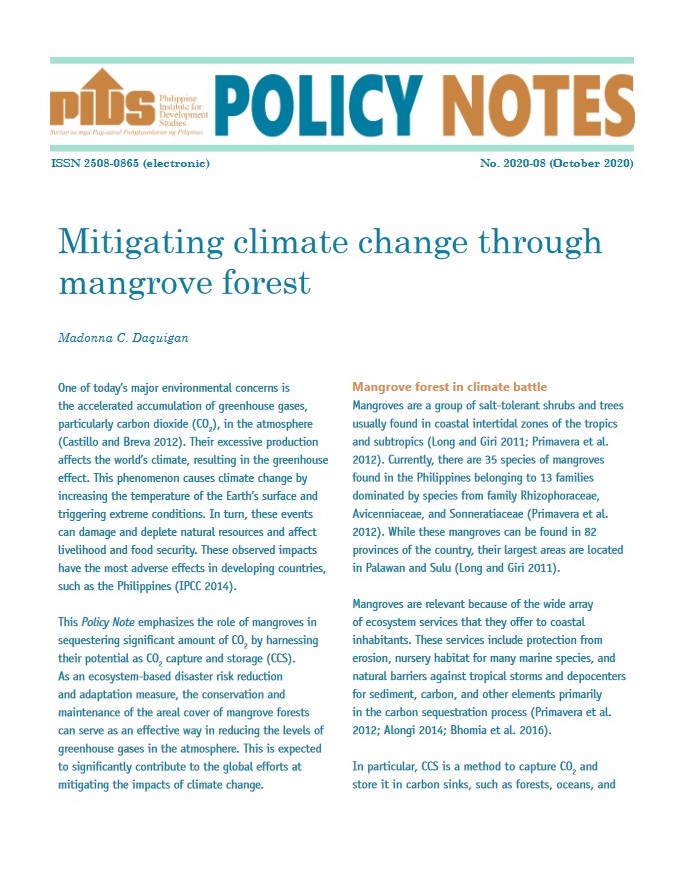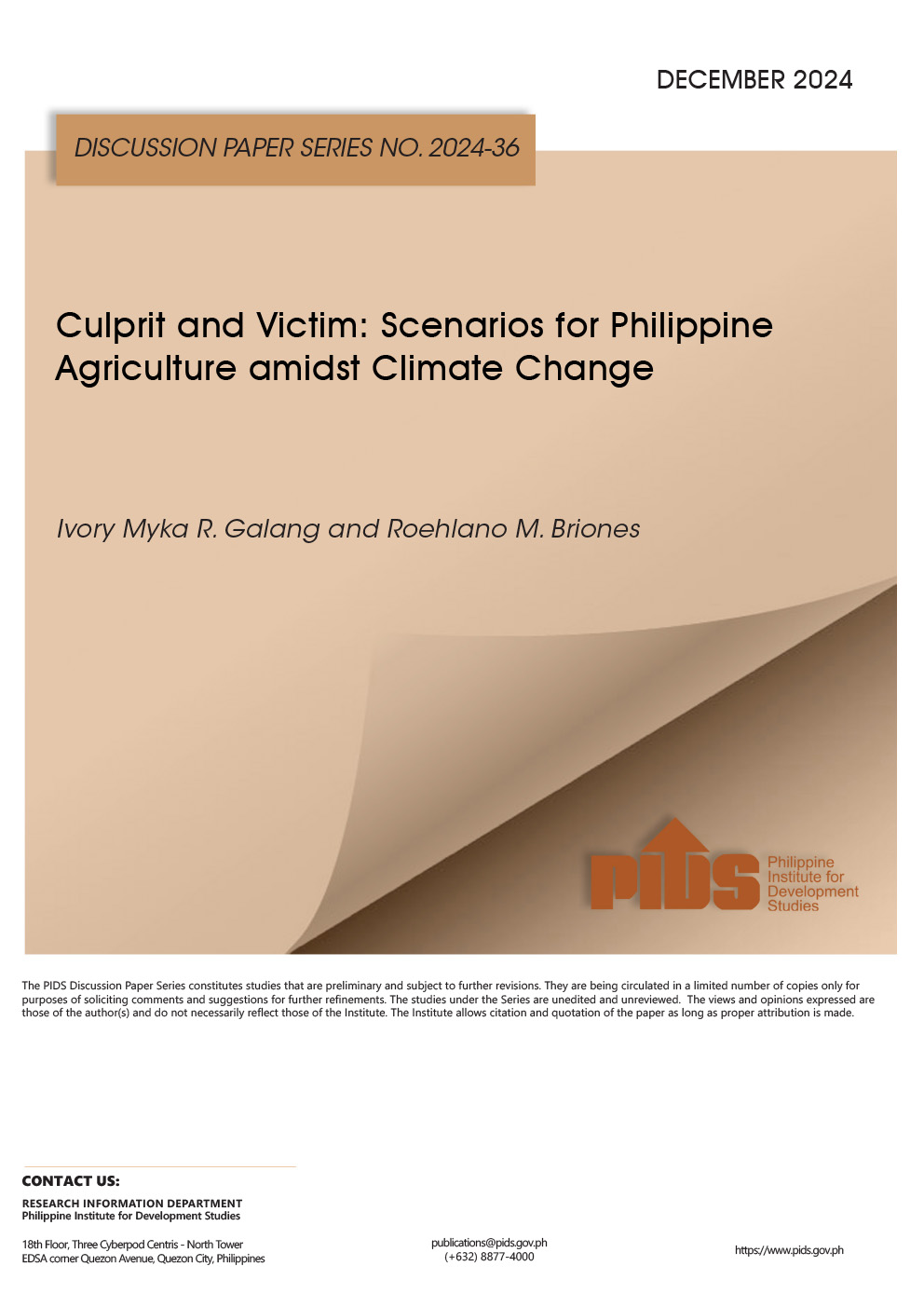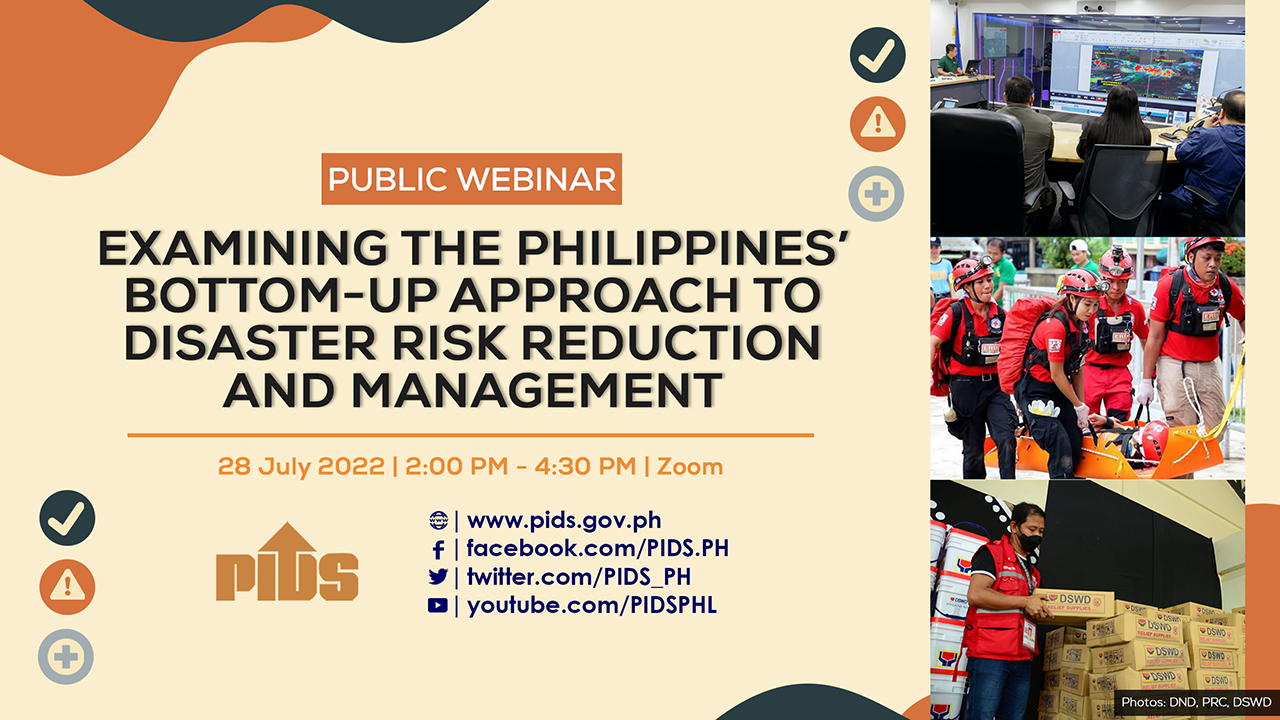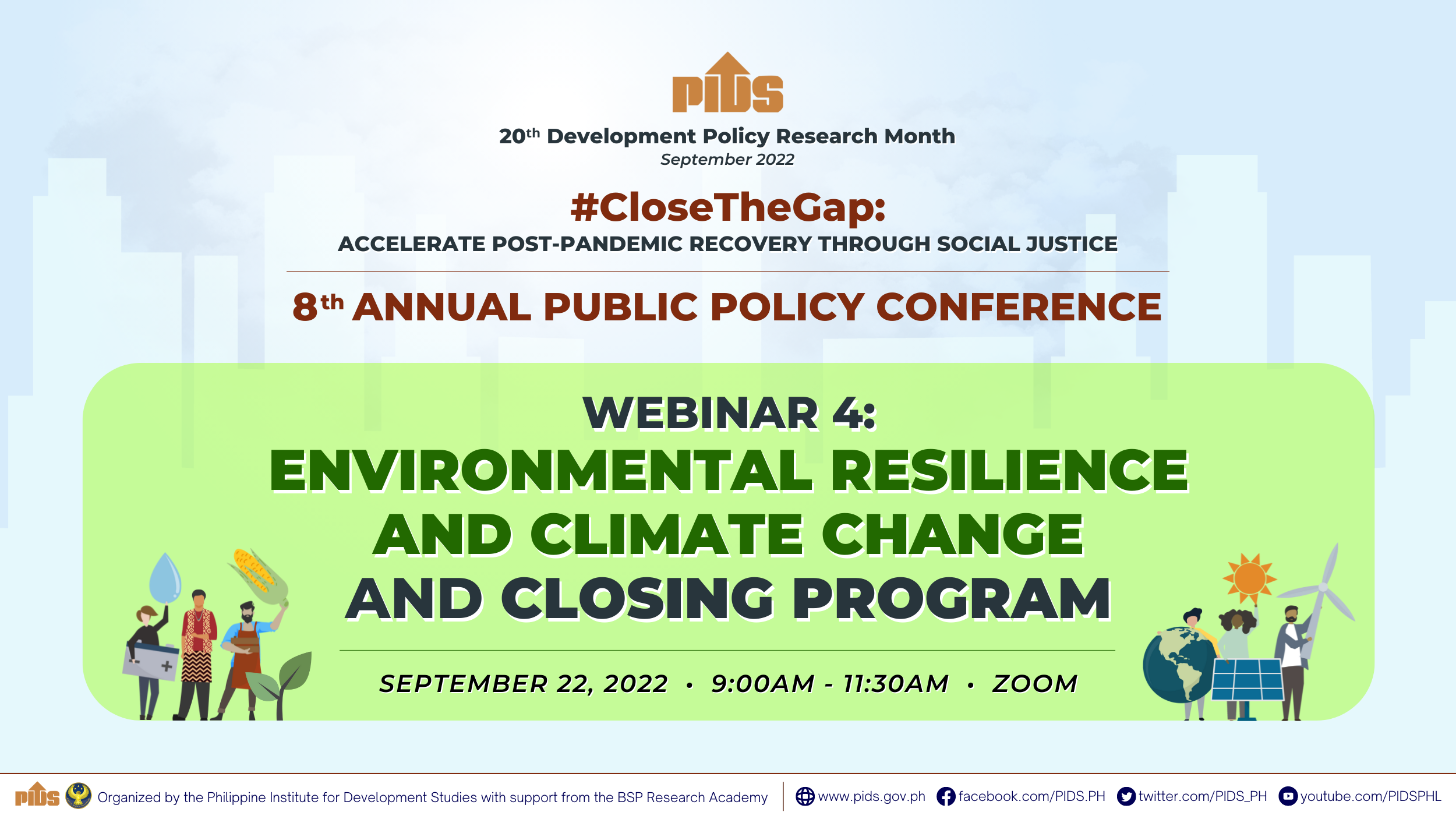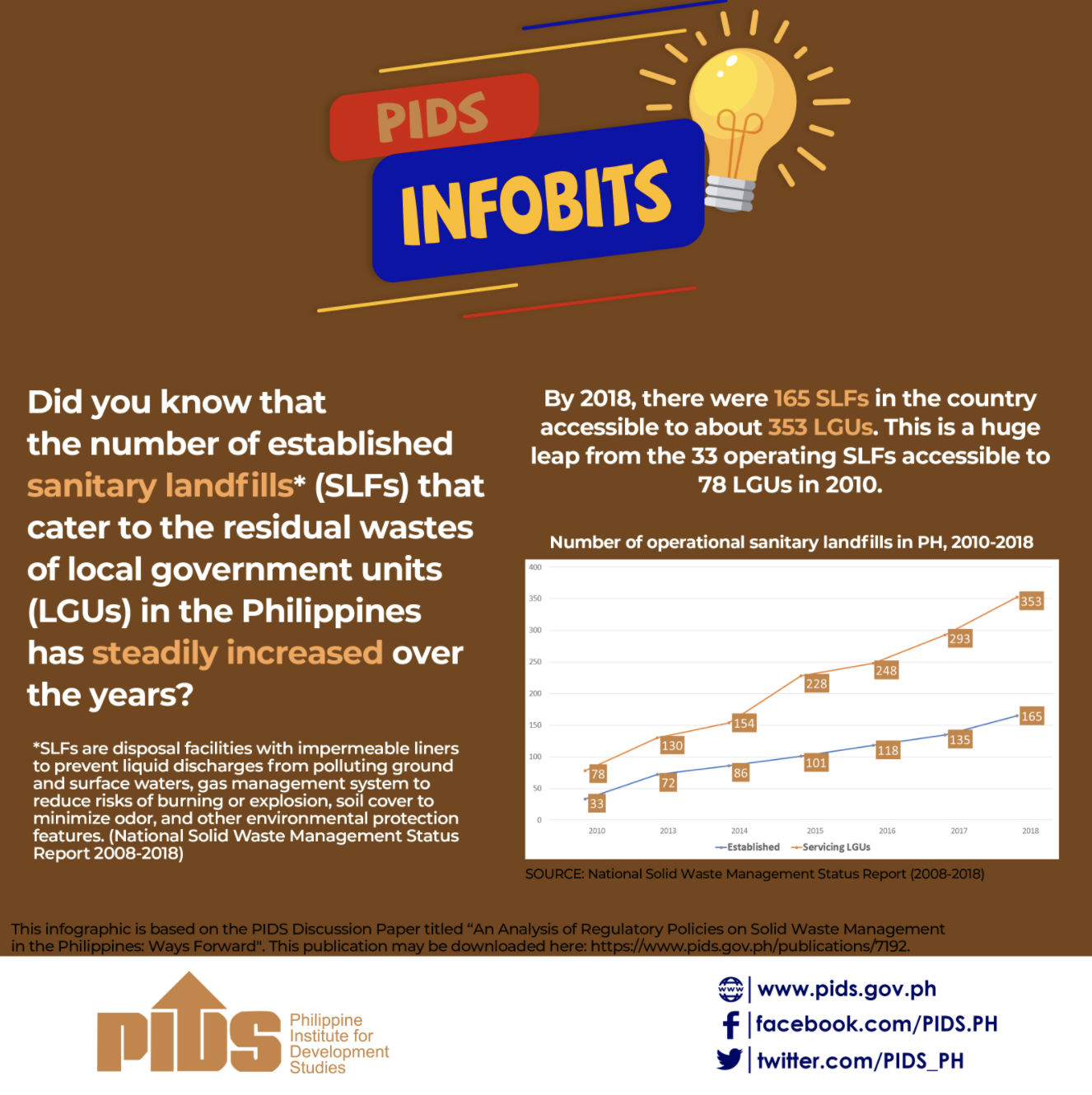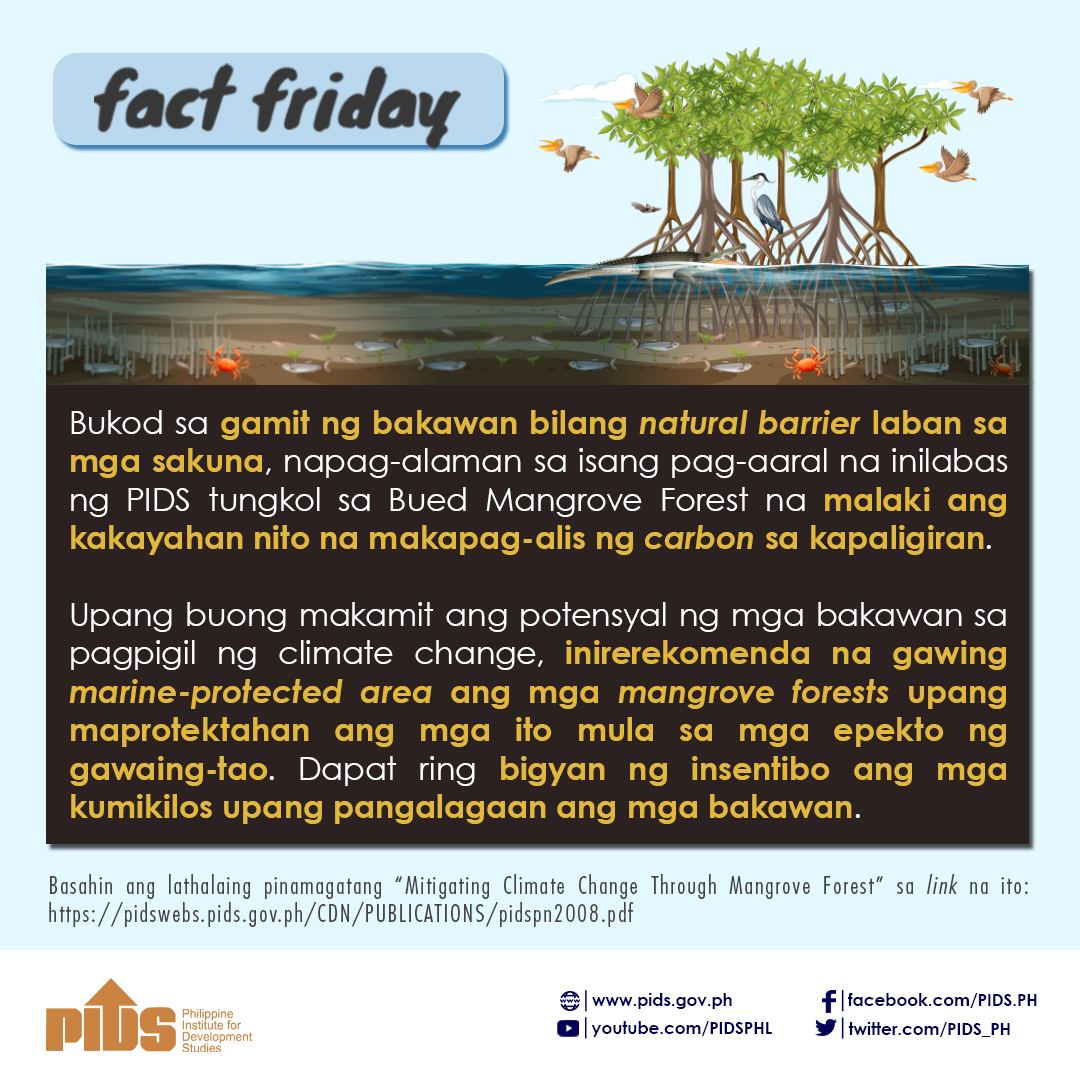
Nature-based solutions and cutting down carbon dioxide (CO2) emissions to net zero must be done within the next 30 years to achieve the Paris climate goal of limiting global warming to below 2°C above pre-industrial levels.
Professor Koh Lian Pin of the National University of Singapore (NUS) emphasized this during the third of the four-part webinar series of the 7th Annual Public Policy Conference (APPC), which featured the topic “Green and Inclusive Recovery”. The APPC is the culminating activity of the Development Policy Research Month organized by the Philippine Institute for Development Studies every September.
“According to the Intergovernmental Panel on Climate Change, we need to go below zero [in CO2 emissions] and reduce [its] concentration in our atmosphere,” he explained. Koh, who is based at the Department of Biological Sciences of NUS, said this can be done by reforesting or rehabilitating degraded ecosystems and avoiding deforestation—or the so-called nature-based climate solutions.
Citing data from an NUS research, he said that “by protecting threatened forests across the tropics, we can avoid the loss of almost 2 billion tons of CO2 per year”. The research also showed that by preserving mangrove forests, the loss of some 30 million tons of CO2 could be prevented.
Additionally, the research revealed that almost 11 million hectares of urban green spaces across 7,600 cities worldwide are potentially available for reforestation, which could significantly contribute to carbon sequestration.
However, Koh noted that there are constraints on reforestation as a climate solution.
He and his team found that an approximately 121 million hectares of degraded terrestrial forests, peat swamp forests, and mangroves in Southeast Asia are biophysically suitable for reforestation. However, local communities might be using these “degraded lands” as smallholder farmlands or home gardens.
“Appropriating these lands for reforestation may compromise the livelihoods, food security, and land rights of these land users,” Koh pointed out.
Another constraint is that reforestation may require constant site maintenance and protection against threats, such as tree diebacks, logging, and forest fires.
The NUS Centre for Nature-based Climate Solutions director stressed that nature-based solutions are important not just for carbon storage and sequestration but also for the “multiple co-benefits they can deliver to society, including biodiversity conservation, water purification, safeguarding food security, and flood regulation”.
He also noted that although nature-based climate solutions are promising, they have risks, such as inaccuracies in the estimates of carbon stocks and sequestration rates, and the potential leakage of environmental impacts.
“A nature-based climate solution is essential for us to achieve the Paris climate goal. Carbon finance is a promising way of shifting capital to fund forest protection and reforestation efforts. But not all carbon projects are effective and successful. That is why we need carbon accounting methodologies and standards to ensure the credibility and integrity of nature-based carbon projects and products. Only then can we ensure a stable supply of high-quality carbon credits to meet market demands,” Koh concluded. ###
Watch the video of this seminar at https://fb.watch/8KiCFqtav8/ and https://www.youtube.com/watch?v=XeSs56RdRLE.
For more videos of PIDS events, go to https://www.pids.gov.ph/videos.
Professor Koh Lian Pin of the National University of Singapore (NUS) emphasized this during the third of the four-part webinar series of the 7th Annual Public Policy Conference (APPC), which featured the topic “Green and Inclusive Recovery”. The APPC is the culminating activity of the Development Policy Research Month organized by the Philippine Institute for Development Studies every September.
“According to the Intergovernmental Panel on Climate Change, we need to go below zero [in CO2 emissions] and reduce [its] concentration in our atmosphere,” he explained. Koh, who is based at the Department of Biological Sciences of NUS, said this can be done by reforesting or rehabilitating degraded ecosystems and avoiding deforestation—or the so-called nature-based climate solutions.
Citing data from an NUS research, he said that “by protecting threatened forests across the tropics, we can avoid the loss of almost 2 billion tons of CO2 per year”. The research also showed that by preserving mangrove forests, the loss of some 30 million tons of CO2 could be prevented.
Additionally, the research revealed that almost 11 million hectares of urban green spaces across 7,600 cities worldwide are potentially available for reforestation, which could significantly contribute to carbon sequestration.
However, Koh noted that there are constraints on reforestation as a climate solution.
He and his team found that an approximately 121 million hectares of degraded terrestrial forests, peat swamp forests, and mangroves in Southeast Asia are biophysically suitable for reforestation. However, local communities might be using these “degraded lands” as smallholder farmlands or home gardens.
“Appropriating these lands for reforestation may compromise the livelihoods, food security, and land rights of these land users,” Koh pointed out.
Another constraint is that reforestation may require constant site maintenance and protection against threats, such as tree diebacks, logging, and forest fires.
The NUS Centre for Nature-based Climate Solutions director stressed that nature-based solutions are important not just for carbon storage and sequestration but also for the “multiple co-benefits they can deliver to society, including biodiversity conservation, water purification, safeguarding food security, and flood regulation”.
He also noted that although nature-based climate solutions are promising, they have risks, such as inaccuracies in the estimates of carbon stocks and sequestration rates, and the potential leakage of environmental impacts.
“A nature-based climate solution is essential for us to achieve the Paris climate goal. Carbon finance is a promising way of shifting capital to fund forest protection and reforestation efforts. But not all carbon projects are effective and successful. That is why we need carbon accounting methodologies and standards to ensure the credibility and integrity of nature-based carbon projects and products. Only then can we ensure a stable supply of high-quality carbon credits to meet market demands,” Koh concluded. ###
Watch the video of this seminar at https://fb.watch/8KiCFqtav8/ and https://www.youtube.com/watch?v=XeSs56RdRLE.
For more videos of PIDS events, go to https://www.pids.gov.ph/videos.

